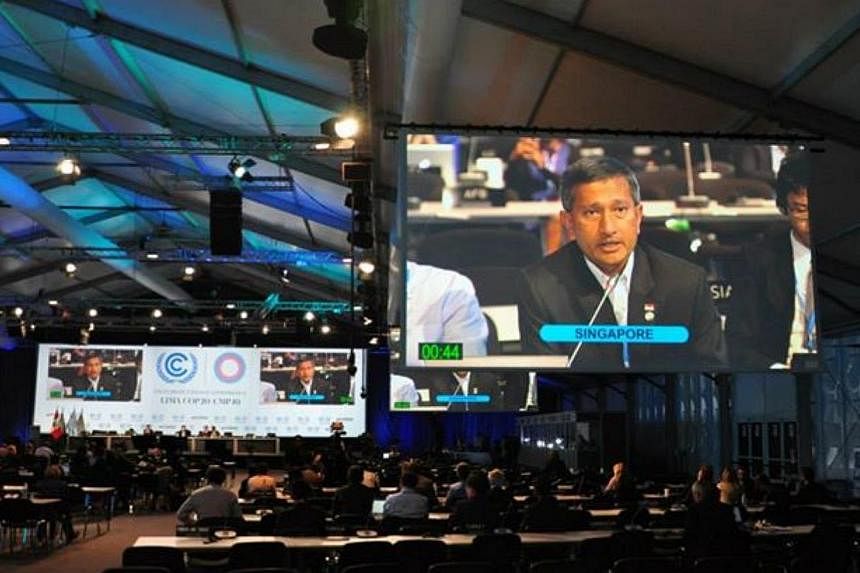SINGAPORE - Singapore did more than its fair share to bring about a deal to combat climate change at a summit in Lima over the weekend, said Environment and Water Resources Minister Vivian Balakrishnan.
The minister posted on Facebook photos of the talks and meetings at the United Nations Climate Change Conference in Lima, which concluded on Sunday.
He wrote: "After protracted, many almost all night negotiations, the United Nations Climate Conference in Lima closed successfully with some last minute minor surgery to the text."
In his post he applauded the team who represented Singapore at the conference. "We may come from a tiny country, but we did more than our fair share to facilitate a successful agreement," he said.
The Lima talks were a precursor to a global deal to slow climate change at a summit in Paris this month. After negotiations that overran their two-week schedule by 32 hours, countries agreed to a very early stage draft negotiating text for a Paris agreement.
The main achievement is that all countries now have to submit national plans to deal with climate change, a shift from the 1997 Kyoto Protocol in which only rich nations need to cut emissions.
"Peru's Minister for Environment did a great job balancing all the divergent interests and anxieties of the more than 170 countries involved," Dr Balakrishnan wrote.
Under the Lima deal, governments will submit national plans for reining in greenhouse gas emissions by an informal deadline of March 31, 2015, Reuters reported.
While progress has been made, the UN Climate Change Secretariat said that the combined pledges by all nations likely in Paris will be too weak to achieve a goal of limiting warming to an agreed goal of 2 deg C above pre-industrial times.
Dr Balakrishnan admitted in his Facebook post that the agreement was not enough.
He wrote: "Frankly, I doubt that the initial contributions by all countries will be adequate for solving the enormous problem. But it is a start, and we will hopefully be able to do more, collectively, in the future."

